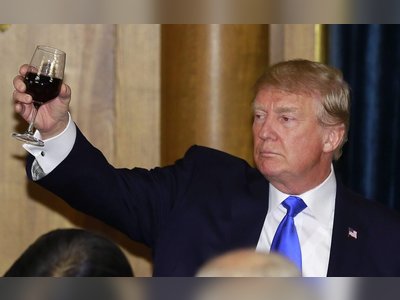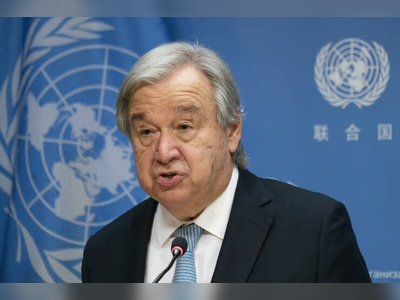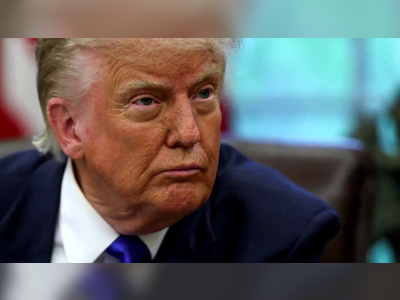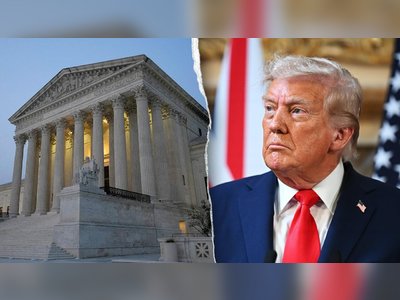Spain Responds to Trump's BRICS Comment, Asserts Strong NATO Commitment
Spain clarifies its military expenditure ranking in NATO and distance from BRICS association following comments from U.S. President Donald Trump.
On Tuesday, the Spanish government addressed comments made by U.S. President Donald Trump concerning Spain’s military spending and its inclusion in the BRICS group of emerging economies, consisting of Brazil, Russia, India, China, and South Africa.
The remarks from Trump suggested that Spain, which he mistakenly grouped with BRICS nations, may face increased tariffs due to its military spending levels.
The Spanish government's spokesperson, Pilar Alegría, responded at a press conference after the Council of Ministers meeting, emphasizing that Spain is the eighth largest contributor to NATO in terms of military expenditure.
Alegría highlighted that Spain is not part of the BRICS, nor should it be considered an emerging country.
She mentioned uncertainty regarding whether Trump's statement was a misunderstanding.
During the Oval Office encounter, Trump expressed a desire for NATO countries, including Spain, to increase their military spending to 5% of GDP. He incorrectly labeled Spain as part of the BRICS, signaling potential imposition of 100% tariffs on these countries.
The BRICS group originally consisted of Brazil, Russia, India, China, and South Africa, and currently includes additional members such as Saudi Arabia, Egypt, UAE, Ethiopia, Iran, and Indonesia.
Pilar Alegría reiterated Spain's role as a 'reliable partner,' contributing actively to international security, with 3,800 Spanish troops engaged in overseas missions, many under NATO operations.
Furthermore, regional political figures such as Isabel Díaz Ayuso, President of the Community of Madrid, also commented on Trump's inauguration.
She welcomed the new U.S. president, offering collaboration from Madrid and expressed her belief that Spain’s image does not align with dictatorial and impoverished nations.
Díaz Ayuso criticized the Spanish government's stance towards the U.S., urging stronger alliances and emphasizing Madrid's position in countering the perceived global narrative about Spain.
The exchanges reflect ongoing diplomatic dialogues addressing international relations dynamics as well as NATO commitments and perceptions between Spain and the United States.
The remarks from Trump suggested that Spain, which he mistakenly grouped with BRICS nations, may face increased tariffs due to its military spending levels.
The Spanish government's spokesperson, Pilar Alegría, responded at a press conference after the Council of Ministers meeting, emphasizing that Spain is the eighth largest contributor to NATO in terms of military expenditure.
Alegría highlighted that Spain is not part of the BRICS, nor should it be considered an emerging country.
She mentioned uncertainty regarding whether Trump's statement was a misunderstanding.
During the Oval Office encounter, Trump expressed a desire for NATO countries, including Spain, to increase their military spending to 5% of GDP. He incorrectly labeled Spain as part of the BRICS, signaling potential imposition of 100% tariffs on these countries.
The BRICS group originally consisted of Brazil, Russia, India, China, and South Africa, and currently includes additional members such as Saudi Arabia, Egypt, UAE, Ethiopia, Iran, and Indonesia.
Pilar Alegría reiterated Spain's role as a 'reliable partner,' contributing actively to international security, with 3,800 Spanish troops engaged in overseas missions, many under NATO operations.
Furthermore, regional political figures such as Isabel Díaz Ayuso, President of the Community of Madrid, also commented on Trump's inauguration.
She welcomed the new U.S. president, offering collaboration from Madrid and expressed her belief that Spain’s image does not align with dictatorial and impoverished nations.
Díaz Ayuso criticized the Spanish government's stance towards the U.S., urging stronger alliances and emphasizing Madrid's position in countering the perceived global narrative about Spain.
The exchanges reflect ongoing diplomatic dialogues addressing international relations dynamics as well as NATO commitments and perceptions between Spain and the United States.
Translation:
Translated by AI
AI Disclaimer: An advanced artificial intelligence (AI) system generated the content of this page on its own. This innovative technology conducts extensive research from a variety of reliable sources, performs rigorous fact-checking and verification, cleans up and balances biased or manipulated content, and presents a minimal factual summary that is just enough yet essential for you to function as an informed and educated citizen. Please keep in mind, however, that this system is an evolving technology, and as a result, the article may contain accidental inaccuracies or errors. We urge you to help us improve our site by reporting any inaccuracies you find using the "Contact Us" link at the bottom of this page. Your helpful feedback helps us improve our system and deliver more precise content. When you find an article of interest here, please look for the full and extensive coverage of this topic in traditional news sources, as they are written by professional journalists that we try to support, not replace. We appreciate your understanding and assistance.











